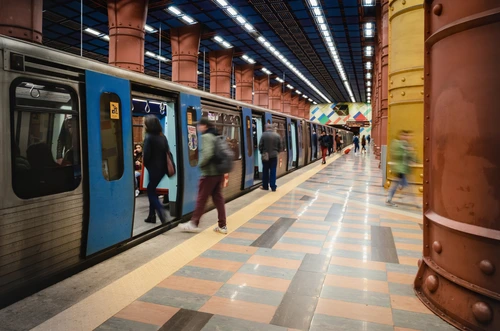
In an effort to enhance the public transport experience and encourage increased ridership, Metro de Lisboa (Lisbon Metro) announced the introduction of a new contactless payment option for its passengers. This modernisation initiative aims to simplify the ticketing process and provide a more customer-centric approach to transit payments. The transit agency has partnered with transit payments specialist Littlepay to implement the change.

With the new contactless payment option, riders of the Lisbon Metro will no longer need to pre-plan their journeys or calculate the most cost-effective ticket option in advance. Instead, they can now enjoy the convenience of a “tap and ride” experience similar to the London Underground. The system ensures that passengers are charged the most advantageous fare based on their individual journeys, eliminating the need for prior ticket purchase considerations.
New infrastructure on the Lisbon Metro
The deployment of this payment infrastructure is made possible through a collaborative effort. The core transit payment service provider has teamed up with industry leaders such as Indra for device validation, and Cybersource and Unicre for local acquiring services. By partnering with these experts, Lisbon Metro hopes to ensure reliability and effectiveness in the new payment system.
The benefits of the contactless payment system extend to both residents and tourists alike. Covering Lisbon Metro’s entire network, which spans 56 stations and four routes, the new system seeks to guarantee a seamless ticketing experience for the metro’s annual ridership of 173 million. Passengers can now pay €1.50 for each single trip, with a daily cap of €6.50. The system automatically stops charging once the day ticket rate is reached. This eliminates the hassle of pre-purchasing day passes, carrying cash, downloading apps, or visiting ticket vending machines, the company claims.
Improving public transport in Portugal
Lisbon Metro’s initiative to modernise its ticketing system reflects its commitment to pioneering public transport in Portugal and Europe as the metro approaches its 75th anniversary in 2024. The integration of a low-cost, modular solution enables the metro to cater to the needs of the modern rider, who increasingly expects to be able to pay with their cards everywhere, including public transit.
Ariel Casado, regional manager of western EU at Littlepay, expressed confidence in the transition to contactless EMV technology, stating: “We’re confident the move to contactless EMV will improve the passenger experience across the metro network and even in the whole Lisbon transit, in the near future. It’s been a fantastic journey, working with the Metro de Lisboa team in paving the way for more ticketing developments.”
[Read more: 11 reasons the Lisbon Metro blows every other transport system out of the water]






